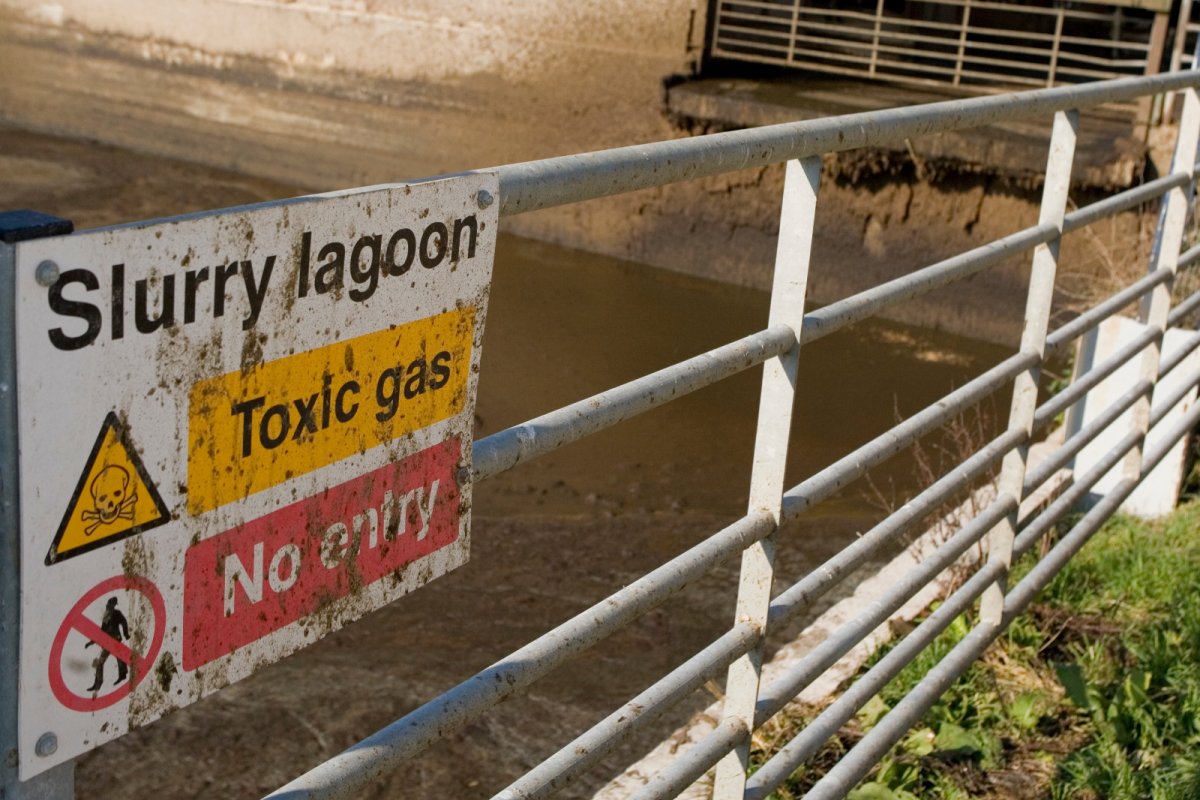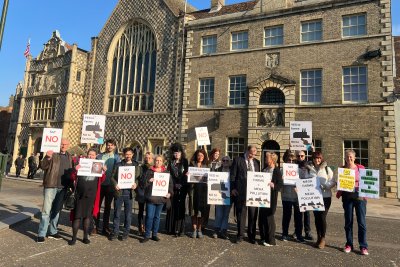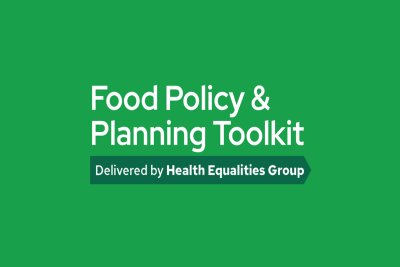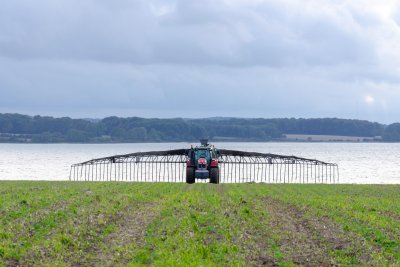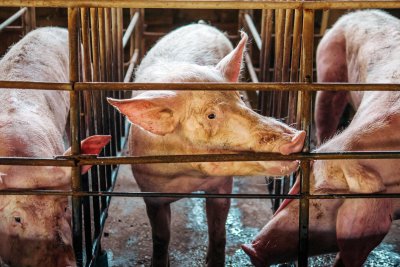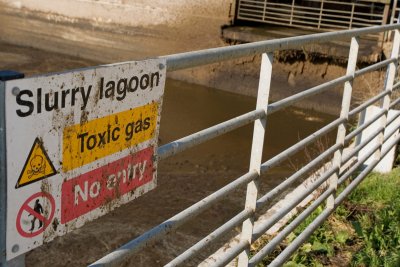 Slurry Lagoon sign at a dairy farm. Copyright: chrisbrignell | shutterstock
Slurry Lagoon sign at a dairy farm. Copyright: chrisbrignell | shutterstock
Hundreds of environmental breaches recorded at industrial livestock farms across East Anglia
Feedback and Sustain reveal agribusinesses ‘routinely failing’ as the decision looms on Norfolk megafarm expansion.
Copies of inspection and enforcement reports obtained by the investigative group AGtivist show that intensive poultry and pig farms across Norfolk and Suffolk, as well as elsewhere in East Anglia, have violated environmental regulations at least 776 times since 2017.
The data is being released as King’s Lynn and West Norfolk Borough Council considers its decision on a proposal to expand a livestock facility to create a US-style megafarm in Norfolk. The official public consultation for the proposal closed on 24th January, having received thousands of objections.
Government to 'tear down regulatory barriers'
The data signals that breaches occurred at least twice a week or nearly ten times a month, on average, during the period (2017-2024). The publication of the data comes less than a month after Chancellor Rachel Reeves called for watchdog bosses to ‘tear down regulatory barriers that hold back growth’. In a meeting with the chief executives of the UK's key regulatory watchdogs, Reeves reportedly revealed that the Government will ask industry to come forward with their own ideas regarding the regulatory environment, and reminded them of the Prime Minister’s promise to 'rip out the bureaucracy that blocks investment'.
Pollution and animal welfare concerns
Among the breaches documented by inspectors were water, ground and air pollution incidents, including waterways being contaminated with slurry and excessive odours, dead animal carcasses being left outside rather than in sealed containers, farms being overstocked with more livestock than allowed, and irregularities relating to the transport and disposal of farm waste. The information was obtained through Freedom of Information (FOI) requests.
Many of the violations related to the management of intensive farms, record keeping, the condition of livestock buildings and other infrastructure, as well as ammonia emissions.
Council urged to 'firmly reject' megafarm proposal
The findings raise fresh concerns about standards on factory farms – and the negative environmental impacts of such units – and come as planning officials consider proposals from industrial meat producer Cranswick PLC for a controversial megafarm in Norfolk that would rear over six million chickens and 56,000 pigs a year.
Under current regulations, intensive livestock farms above a certain size threshold – 40,000 poultry birds or 2,000 fattening pigs or 750 breeding pigs – must hold a permit to operate, issued by the Environment Agency. Farms holding a permit are inspected to assess livestock housing, slurry and manure storage, and drainage systems. They are also inspected to check farm records relating to animal numbers, feed, energy and water use, and waste disposal.
In a joint submission to the Borough Council’s consultation, Feedback Global and Sustain objected to the megafarm application on a number of grounds, including that a lack of information on greenhouse gas emissions in the application means it is not legally compliant.
The development could increase emissions by more than 120,000 tonnes of CO2-equivalent annually, contrary to the Council’s climate strategy and the UK’s legally-binding commitment to achieve net zero by 2050.
Lily O’Mara, Climate Justice Fellow at Sustain, said:
“Time and again, big agri-businesses claim to care about sustainability while routinely failing to meet even the most basic regulations. The government should strengthen enforcement on vital safeguards for our soils, rivers and air and not weaken planning policy where there is mounting evidence of environmental violations and unsustainable practices.
“The Chancellor and Environment Secretary should recognise that rural communities paying the price while corporate agribusinesses reap the rewards is not the kind of economic growth the country needs. The government must commit to a just transition out of the exploitative and damaging system of intensive livestock farming to a sustainable, fair and nature-friendly food model.”
Natasha Hurley, Campaigns Director at Feedback Global, said:
“The finding that industrial farms in East Anglia are committing the equivalent of two environmental breaches every single week starkly underlines why King’s Lynn and West Norfolk Borough Council must firmly reject the current proposal for a climate-wrecking megafarm near Methwold.
“This newly revealed data clearly shows this kind of US-style industrial farming is absolutely no way to rear livestock, as it leads to a litany of consequences from water, ground and air pollution through to animal welfare issues and foul odours. This is all in addition to factory farming’s colossal climate impact, which jeopardises both local and national climate targets. What more proof does the Borough Council need that expanding emissions-intensive factory farming as the climate crisis intensifies is total madness?”
Food for the Planet: Helping local authorities to tackle the climate and nature emergency through food.
Sustain
The Green House
244-254 Cambridge Heath Road
London E2 9DA
020 3559 6777
sustain@sustainweb.org
Sustain advocates food and agriculture policies and practices that enhance the health and welfare of people and animals, improve the working and living environment, promote equity and enrich society and culture.
© Sustain 2025
Registered charity (no. 1018643)
Data privacy & cookies
Icons by Icons8
